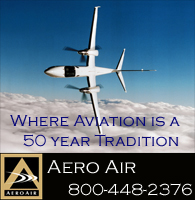Aircraft maintenance is a highly demanding career. Few hands-on maintenance jobs require so much responsibility. Get the job right and you’re not only making the customer happy, you’re keeping him safe. Get the job wrong and you risk the company’s reputation, its income, and most importantly, the customer’s confidence in the airplane and the pilot’s and passengers’ personal safety.
Achieving the level of trust required to work independently on all the systems of a Twin Commander takes dedicated training, close oversight, and years of experience. Eagle Creek Aviation’s Maintenance Quality and Service Manager Mike Grabbe said it can take 10 years to become an expert on an airplane. That’s after formal or hands-on training, extensive hands-on experience, and a broad range of troubleshooting and repair or overhaul experience.
With mechanical aptitude, conventional wisdom says that much of a person’s ability is innate, unteachable skills. Not the case, says Grabbe. “You have to be a really good detective,” he said. “You gotta find the criminals.” While some success comes from experience, a lot of it comes from a methodical approach. Memorization will only take a tech so far. He needs to take the time to read and really dig into diagrams and schematics.
Andre Pridgen, the manager of Aero Air’s Twin Commander Factory Authorized Service Center, agrees. “If you have a logical thought process, you can do it,” he said. If a candidate doesn’t have a lot of airplane-specific experience, Pridgen likes to see some basic computer coding on their resume. Often people who have worked with coding know how to follow a logical sequence. “You can hand them a new system diagram and they can understand the basics right away,” he said. “Pick any problem on any airplane, and within a reasonable amount of time, they’ll have the faulty component identified and confirmed.”
That said, regardless of the resume, both he and Grabbe agree that some new hires just have what it takes. Often, they are ex-military and have worked in that professional environment before. They are typically disciplined and ready to learn as well.
If someone does possess some tribal knowledge, it can help them get an edge in the shop, but not necessarily in the way you’d expect. Grabbe said that tribal knowledge is an asset primarily because it helps a person know where to start looking. Aging airplanes usually exhibit certain trends, and an experienced tech will probably know the usual culprits. But Grabbe said that’s most helpful because the technician knows where to target his search in the manuals or regulations.
Pridgen said it’s not unusual for experienced technicians who don’t have airplane-specific knowledge to declare they know the problem and how to fix it, only to find out their hunch was wrong. He’d much rather someone have a methodical approach.
New-hire training progresses at an individual pace. Some are ready very quickly for the Twin Commander authorized training course that Grabbe teaches at Eagle Creek, while others take a few years before they’re ready for the large investment. However, once the technician has completed the course, Grabbe said they’re ready to work solo or in a team under the lead’s supervision.
Pridgen’s approach is more component-by-component progress. He or another Twin Commander expert will teach a new technician to inspect the landing gear, for example, and then let them try one on their own. Each job is reviewed by the team lead to ensure it meets the company and manufacturer standard. He said that while most of Aero Air’s technicians have some hands-on Twin Commander experience, he considers three to be true experts with many decades of experience. That’s a pretty high concentration in one location.
Of all the benefits of investing a Twin Commander Factory Authorized Service Center with sole responsibility for the care of your airplane, the experience and expert oversight are perhaps the strongest arguments. Price and availability are important, but experience and stringent quality control can save time and money in the long run.




